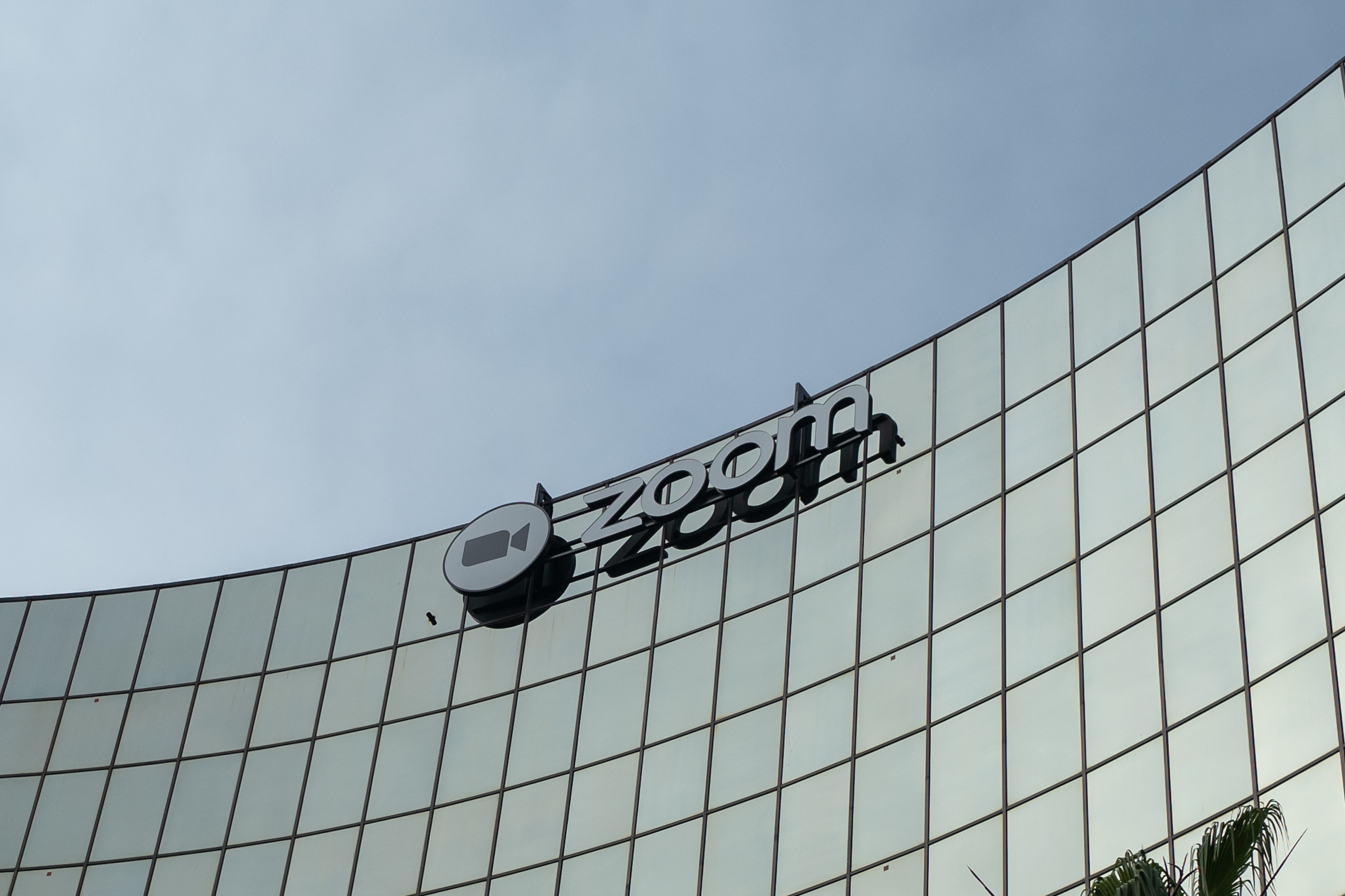Yesterday, Klarna CEO Sebastian Siemiatkowski admitted to a reporter that this didn’t feel like the right moment to take his buy now, pay later company public.
“I think it would be nice to IPO when it’s a little bit more sound,” he told CNBC’s Karen Tso. “And right now, it doesn’t feel really sound out there.”
This caught Alex Wilhelm by surprise. In his view, “the public market for BNPL companies actually feels pretty damn strong at the moment.”
“Hell, at one-third of Affirm’s present-day GMV run-rate multiple, Klarna is worth around $80 billion. That’s much more than the sub-$50 billion valuation the company secured earlier this year,” Alex writes.
“So, what’s driving Klarna to be afraid of going public?”
TechCrunch Disrupt 2021 is underway!
Tickets are still available for the three-day virtual event, which encompasses everything from Ryan Reynolds’ lessons on “fast-vertising” to Startup Battlefield, where early-stage companies will compete for a chance to win a slice of equity-free funding.
And, if you’re free tomorrow at 9:05 a.m. PT, I’m moderating “The Path for Underrepresented Entrepreneurs,” a discussion with:
- Hana Mohan, founder & CEO, MagicBell
- Leslie Feinzaig, founder & CEO, Female Founders Alliance
- Stephen Bailey, co-founder & CEO, ExecOnline
I hope you’ll join the conversation! Have a fantastic week, and thanks very much for reading.
Walter Thompson
Senior Editor, TechCrunch
@yourprotagonist
Zoom looks beyond video conferencing as triple-digit 2020 growth begins to slow

Image Credits: Smith Collection/Gado / Getty Images
Zoom’s pandemic-induced growth was so explosive, the company’s name is now a verb.
Last quarter, the company’s revenue grew 54%, a sharp drop-off from 191% in its previous quarterly earnings report.
Now, “Zoom has recognized that it must expand into other areas,” writes Ron Miller, who interviewed Gartner analyst Mike Fasciani and Oded Gal, Zoom’s chief product officer, about what’s ahead for the platform.
The value of software revenue may have finally stopped rising

Image Credits: Nigel Sussman (opens in a new window)
After taking a hiatus from covering SaaS multiples, Alex Wilhelm took a closer look at software revenue and noted that “the upward charge has plateaued” in recent months.
Last year, these companies were racing up the charts.
Today, “we’re seeing the value of low, mid and high-multiples SaaS companies each find a comfortable trading range after a bull run since early 2016, albeit one with caveats,” he writes.
Choices and constraints: How DTC companies decide which strategy to follow

Image Credits: Daniel Grizelj (opens in a new window)/ Getty Images
Warby Parker’s brick-and-mortar revenue now exceeds its online sales, PipeCandy co-founder Ashwin Ramasamy notes, while Allbirds, though opening stores, still talks about its digitally native status in the present tense.
“If a company’s customer acquisition, fulfillment and retention need a physical presence, no matter what percentage of revenue comes from digital channels, it is a DTC company (beyond digital channels),” says Ramasamy.
“But if a company’s customer acquisition, fulfillment and retention can happen without a physical presence, it is a DNVB (digitally native vertical brand).”
Toast raises IPO price range, providing a Monday bump to fintech valuations

Image Credits: pryzmat (opens in a new window) / Shutterstock (opens in a new window)
Boston-based software-and-fintech firm Toast raised its IPO price range on Monday, ticking up to $34 to $36 per share from a previous range of $30 to $33.
“The so-called ‘vertical SaaS’ model, in which startups build software tailored to one particular industry or another, has become a somewhat two-part business effort; many startups today are pursuing both the sale of software along with fintech revenues,” Alex Wilhelm writes.
“Toast’s IPO, then, could operate as a bellwether of sorts for a host of startups.”
Inside GitLab’s IPO filing

Image Credits: Siegfried Layda (opens in a new window) / Getty Images
Last Friday, Alex Wilhelm delved into GitLab’s IPO filing and took a detailed look at the DevOps firm’s revenue and valuation.
“GitLab [could] be worth $10.46 billion. Which is more than $6.0 billion, so we can see a path for the company to surpass its final private-market valuation,” Alex writes.
“However, we are not saying that the company is worth 11 figures. Investors may decide that the pace of its losses make it less valuable than some of its peers, or that its growth rate is decelerating too quickly to receive a market-leading multiple.”
What we can learn from edtech startups’ expansion efforts in Europe

Image Credits: Sergiy Trofimov Photography (opens in a new window) / Getty Images
Given edtech’s explosive growth over the last two years, expectations are higher than ever for founders.
Rhys Spence, head of research at European edtech-focused fund Brighteye Ventures, says many companies in the space are leaning into international expansion to drive growth.
“Going international later in the journey or when more funding is available, possibly due to a VC round, seems to make facets of expansion more feasible,” he writes in a guest post.
Analyzing responses from 57 early-stage edtech startups, Spence examined their marketing strategies, listed founders’ top priorities and identified “gateway” markets where these companies hope to make inroads.
Which VCs are set to make a killing in GitLab’s IPO

Image Credits: Nigel Sussman (opens in a new window)Another week, another look at GitLab’s IPO.
For The Exchange, Alex Wilhelm listed which funds will rake in major coin when the developer toolkit firm goes public:
- August Capital: 14,931,200 Class B shares, or 11.1% of that equity class.
- GV: 8,888,776 Class B shares, or 6.6% of that equity class.
- ICONIQ: 15,472,204 Class B shares, or 11.6% of that equity class.
- ICONIQ: 1,150,784 Class A shares, or 100% of that equity class (to be diluted in IPO).
- Khosla: 19,028,320 Class B shares, or 14.1% of that equity class.
“Given that GitLab was valued at $6 billion earlier this year in a secondary transaction, the percentages above convert to huge sums,” he writes.
Freshworks’ valuation could crest $10B in upcoming IPO

Image Credits: Freshworks
Software-as-a-service platform Freshworks raised its expected IPO price range this week. It’s now planning a per-share range between $32 and $34, a significant bump from $28 to $32.
“That would put Freshworks in the same tier of public SaaS companies as UiPath and Okta, heady company given their historically rich valuations,” writes Alex Wilhelm.
“Freshworks, then, is set to go public at a valuation that it must find attractive.”
Demand Curve: How to get social proof that grows your startup

Image Credits: alvarez (opens in a new window) / Getty Images
Demand Curve’s Nick Costelloe unpacks the importance of leveraging social proof to grow your startup.
“When people are uncertain, they look to others for behavioral guidance,” he writes. “This is called social proof, which is a physiological effect that influences your decisions every day, whether you know it or not.”
Costelloe’s research determined that marketers were able to boost conversion rates as much as 400% by leveraging social proof.
The next healthcare revolution will have AI at its center

Image Credits: Kilito Chan (opens in a new window) / Getty Images
In an excerpt from “AI 2041: Ten Visions For Our Future,” author Kai-Fu Lee makes the case that recent advances in artificial intelligence are starting to transform healthcare.
Studies have shown that AI is as good as humans when it comes to diagnosing disease, but the pandemic has accelerated the digitization of patient records and data.
“Over the coming decades, we can expect medical diagnosis to evolve from an AI tool that provides analysis of options to an AI assistant that recommends treatments,” writes Lee.
Lee identifies several areas where AI will improve outcomes in drug discovery, complex surgeries and monitoring, but also looks at potential concerns, such as legal liabilities.
“AI healthcare is not just a market — it represents a tidal wave of transformations that will change the entire industry.”
 from eCommerce – TechCrunch https://ift.tt/3CCfdhh
from eCommerce – TechCrunch https://ift.tt/3CCfdhh via IFTTT
via IFTTT
No comments:
Post a Comment